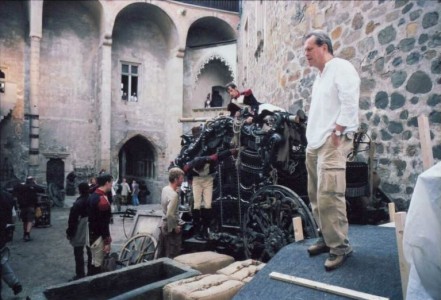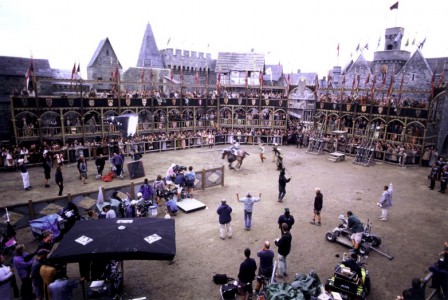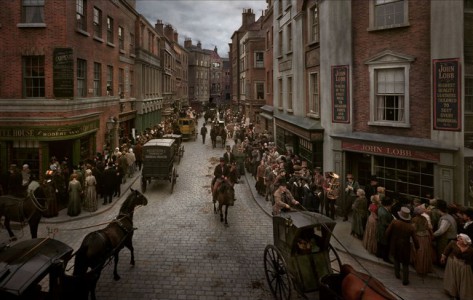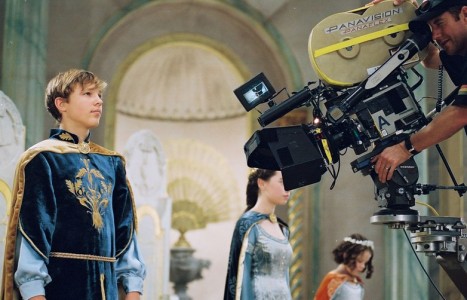Central and Eastern Europe have a long and significant history in cinema. Today, not only are countries in this region producing intresting and often challenging films, they are also offering quality crew and facillities as well as film-friendly locations.
Explaining the appeal of the Czech Republic, Denisa Strbova, project manager for the Czech Film Commission, cites “awesome locations, world-class facilities and exceptional talent – all for reasonable prices”. Also significant was the introduction of incentives in 2010 – and the fact that Czech Republic is film friendly.
In terms of locations, Strbova says: “The diversity and easy accessibility of locations is one of the main reasons filmmakers return. In particular, Prague has been a big draw. It has appeared in many films, and not just as the Czech capital. Often filmmakers come to shoot sights that no longer exist in Berlin, London, Paris and Vienna – at a fraction of what it would cost in those cities.”
Aside from the location offer, Prague has some of the most sophisticated sound stages in Europe, Strbova says. Barrandov Studios has 14 purpose-built soundproof stages and complete support facilities within minutes of downtown Prague, the largest of which hosted The Chronicles Of Narnia: Prince Caspian. Barrandov also has a 160,000 sq m backlot that has seen set-builds for A Knight’s Tale, Oliver Twist and The Brothers Grimm. Prague Studios, meanwhile, hosted Wanted, while Film Studio Gatteo, in the south of the city, has five soundstages and an 18 cubic meter water tank.
Projects come to the Czech Republic from all over Europe. Last year’s key titles included Susanne Bier’s thriller Serena and Denmark’s A Royal Affair. Other titles included Jean-Pierre Ameris’ L’Homme Qui Rit and Crossing Lines, a Franco-Czech crime series co-production.
While the capabilities of the Czech industry are not in doubt, the country’s recent experience shows what happens when you do not have a competitive tax incentive. Until the start of the last decade, the Czech Republic was the preferred destination for filmmakers in Central and Eastern Europe. But that changed in 2004 when Hungary introduced attractive tax breaks and started winning work. With projects like Hellboy 2, Season Of The Witch, Bel Ami and HBO’s TV mini-series John Adams heading for Hungary, the Czechs saw revenue from movie and drama productions drop from $270m in 2003 to $40m in 2008.
Meanwhile, in Hungary, public support for the sector has encouraged private investment. Korda Studios, opened in 2006, had six sound stages operating at full capacity by 2011, with high-end TV projects including World Without End passing through. Then came a studio joint venture between Hollywood-based Raleigh Studios and Hungary’s Origo Film Group. This has gone on to attract projects such as the romantic comedy Monte Carlo and A Good Day To Die Hard.
Hungary continues to attract projects. But the Czech Republic responded in 2010 by introducing its own tax credit – a 20% rebate on qualifying Czech spend and 10% on qualifying international spend – and has reasserted itself. In 2013, according to Strbova, €19.5m in incentives will be allocated by the Czech State Fund for the Support and Development of Czech Cinematography.
“Budapest is a comparable city, prices are good there and the incentive system seems to work smoothly,” she adds. “Before 2010, when our incentive was launched, the Czech Republic lost many potential international projects to Hungary. However, if producers have a choice, they would mostly go to Prague. The incentives are the key point in the decision-making process.”
Ironically, the Czechs and Hungarians are now having to look over their shoulders at other Eastern European countries, such as Romania, Serbia, Bulgaria and the Baltics, which have also started to offer cut-price services. Romania, for example, hosted Nic Cage’s Ghost Rider: Spirit of Vengeance movie; The Necessary Death Of Charlie Countryman, starring Rupert Grint; and History Channel US’ epic six-hour mini-series Hatfields And McCoys, which was shot in Romania to capture the remoteness of 19th century Appalachia.
Despite some reluctance among cast and crew to take such a quintessentially US drama abroad, thus depriving the US of work, Romania did a pretty good job, according to lead actor Kevin Costner. “We were served very well by the people out there,” he said after the shoot finished. “No matter what the weather conditions were, you looked and people were right there with us.”
With the UK and Germany concerned about Canada, and Hungary under threat from cheaper rivals, one trend noted by Adrian Wootton, CEO of the British Film Commission, is more collaboration within Europe. “The competition is global,” he says, “so we see situations where the UK can work with Hungary, rather than see it is a threat. The tax credits in the two countries are quite complementary, so a US filmmaker can look to the UK for the heavy-lifting but then break off bits of work for Hungary.”
The Germans are also thinking collaboratively. In February, Munich’s Bavaria Film Group entered a partnership with Origo Film Studios. For Bavaria Film group managing director Achim Rohnke, this will“enable us to co-offer our studio services and mobile production services for major productions all over Europe”.
Origo CEO Ilona Kecskes makes a similar point: “We will be able to meet and manage international competitive demands jointly and therefore more effectively. In Germany and in Hungary, there are film funds and sponsorships with different focuses that can be combined.”
With many productions requiring diverse locations, collaboration does seem like a way for Europe to fend off the global challenge. The European film commission network the EUFCN has a role to play, its president Arie Bohrer believes, in linking up countries with complementary offerings. “My country, Austria, has great locations — castles, forests, mountains, historic buildings — but we don’t have a lot of studios or very competitive incentives. So a model that could work for us is to have exteriors filmed here and studio work handled one and a half hours away in Munich.”
See the full report on shooting in Europe in the current edition of Location magazine.





